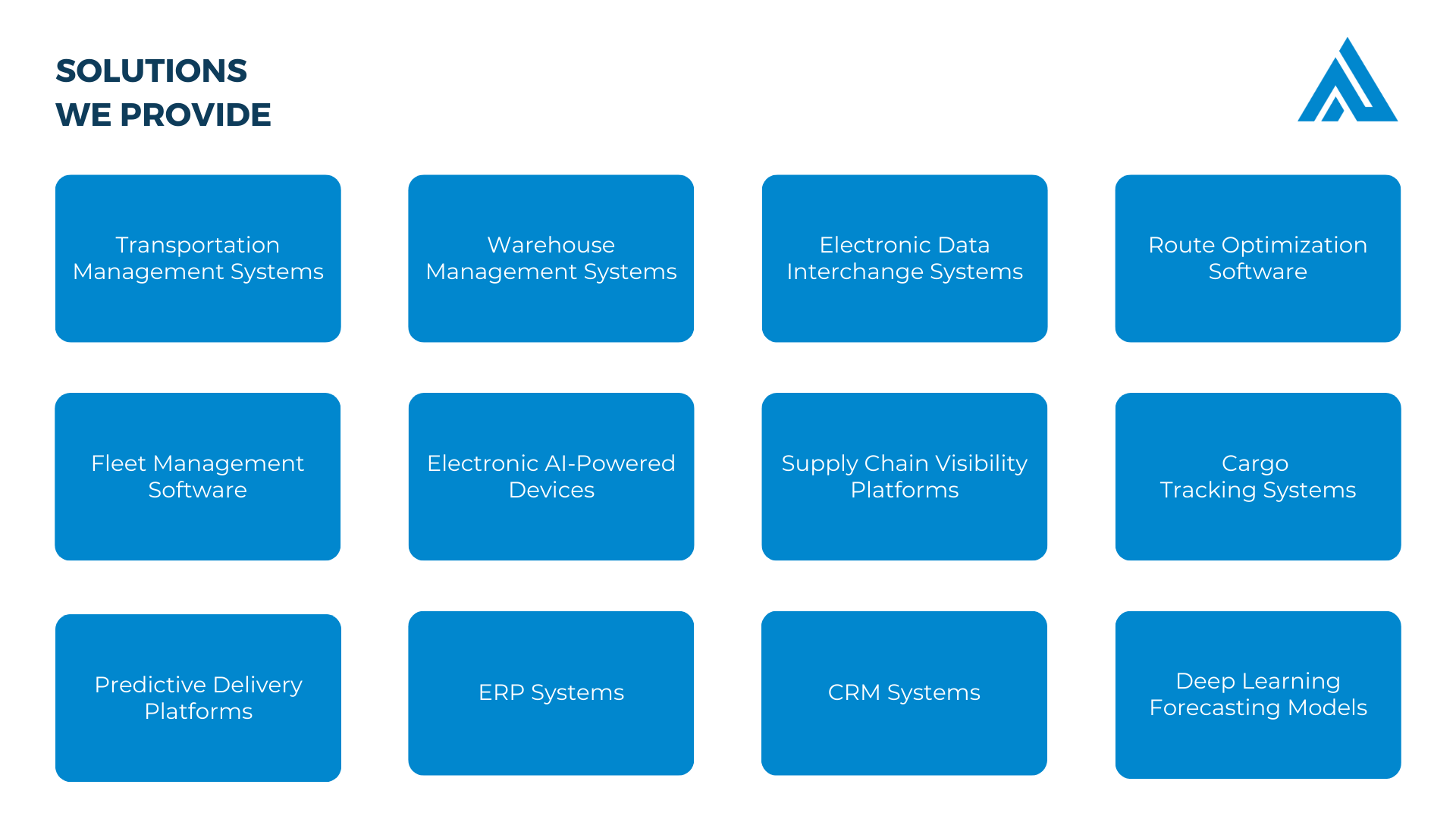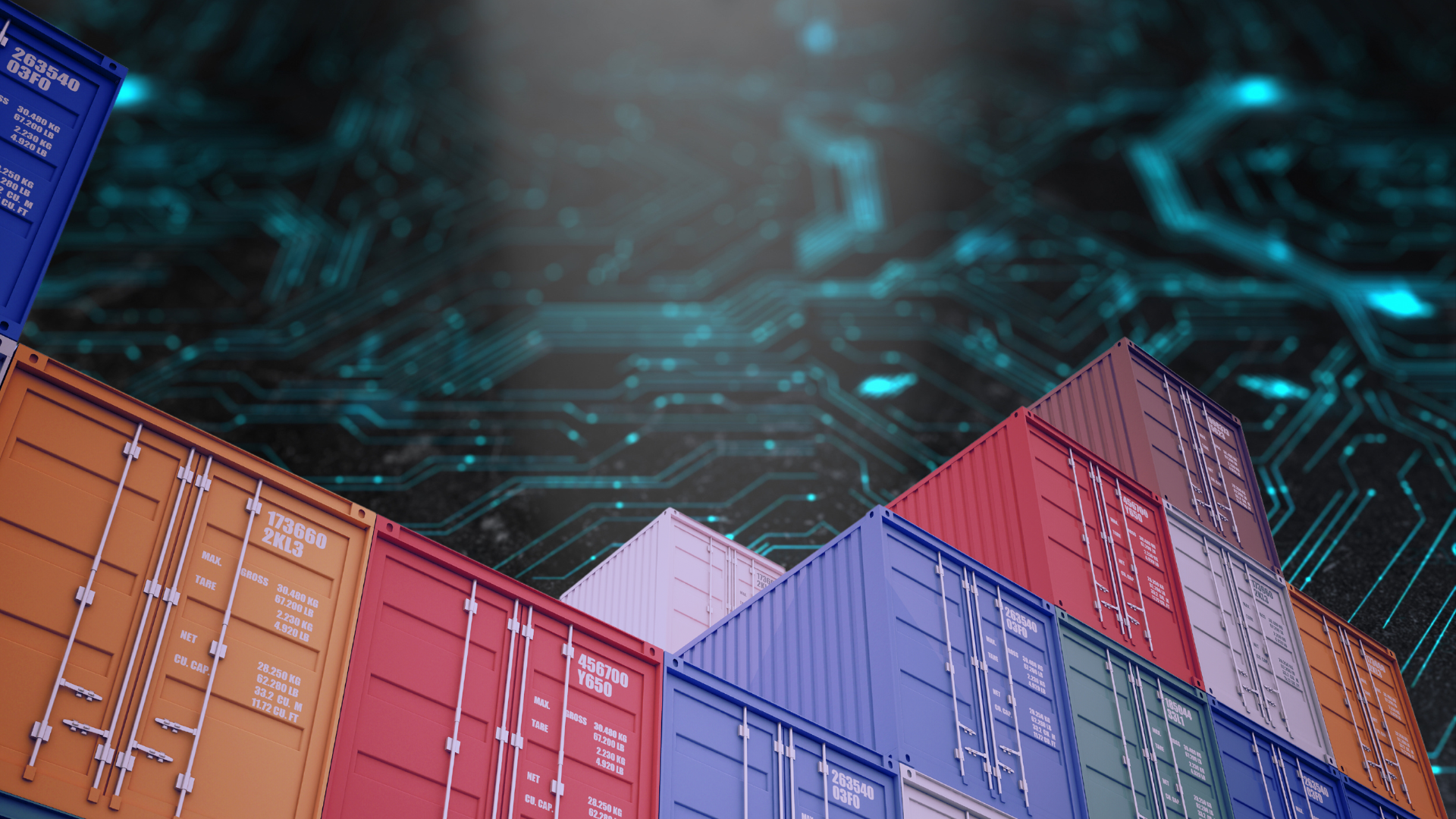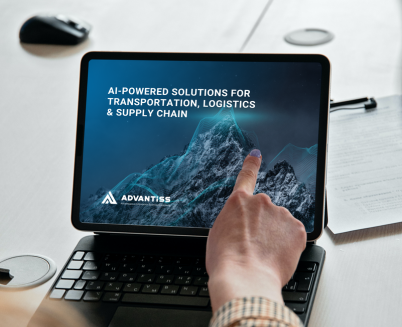Content
- Common Problems in the Logistics Sector as of 2023
- Opportunities Unleashed by IT Solutions for the Logistics Business
- Efficient Customer Relationship Management (CRM)
- Effective Resource Planning with ERP
- Control of Logistics Facilities with WMS (EWM)
- Efficient Navigation with GPS and Satellite Systems (TM)
- Advantages of Digitizing the Logistics Sector
- How AdvantISS Experience Can Help Your Business Overcome Challenges of Logistics
Logistics plays an almost pivotal role in the world. It is significant both from a social perspective, such as the delivery of food and raw materials, and from an economic standpoint (trade, supply chains).
According to analysts at Allied Market Research, the global logistics market has reached a value of $9.8 trillion. According to their projections, by 2032, this figure will reach $16.7 trillion with a CAGR of 5.6%. From our perspective, these figures most effectively demonstrate logistics’ global demand and importance.
However, there are still some imperfections, even within this field. With this niche’s development, new logistics challenges emerge, as well as risks for service providers.

AdvantISS experts have analyzed the industry and prepared material for you on the topic of problems with logistics. In the following text, you will learn:
- What typical challenges exist in this segment?
- What impact do they have on businesses?
- How IT helps to solve various difficulties.
- What opportunities do IT solutions open for companies?
- The advantages of maximum digitization for businesses.
Common Problems in the Logistics Sector as of 2023
The last decade has brought quite a few shocks to the global economy and the logistics segment in particular. The crisis began with the COVID-19 pandemic and continued with geopolitical conflicts and other global tensions. Companies had barely recovered from the lockdown when they immediately lost a key transportation hub in Europe. Land transportation between Europe and Asia is now very problematic.
Rising oil prices (exceeding $90 per barrel), fuel prices, a shortage of logistics hubs, longer routes with “empty miles”, and environmental challenges are just a small part of the problems that have arisen in recent years.
Business digitization has partially solved these difficulties but has also created new risks. Among them, the most common is cybersecurity, as hackers have become increasingly active, attempting to breach digital systems and infrastructure worldwide. The logistics segment is one of the primary targets of cybercriminals.
Neglecting Logistics Problems: A Mistake
Let’s start with the key aspect: revenue. The financial component is the most significant loss for a company that ignores the modern challenges of logistics. Not necessarily directly, but ultimately, everything leads to this.
According to a survey conducted by WWPO, more than 65% of respondents reported that their supply chain-related losses during the pandemic surpassed their initial projections. As a result, 65% of those surveyed initiated improvements, with 18% opting for a complete overhaul of their supply chains, including digitizing their logistics operations.
But these challenges represent just a portion of the sector’s difficulties.
Let’s explore some examples:
- A business neglects a logistics problem, e.g., the rising cost of fuel. It doesn’t optimize routes or fuel costs. As a result, net profitability decreases due to increased expenses.
- The company uses only its warehouses and transportation hubs. This increases costs for land leasing, facility maintenance, and infrastructure expansion. Profitability declines.
- A provider doesn’t update its digital component. Risks emerge, primarily data leaks (a critical component of logistics), leading to a loss of reputation, customers, and revenue.
- A business doesn’t optimize internal processes and resources, performing unnecessary operations and tasks, increasing operational expenses without benefiting the brand. Revenues decrease.
- The company uses outdated methods for customer interactions. The number of disputes and conflicts is increasing, and the turnover of orders and customers is decreasing, as well as revenues.
The above examples are merely illustrative, as there are numerous significant problems with software and logistics processes. However, every risk and challenge can be viewed from two sides: as a potential loss or as a potential opportunity. We suggest focusing on the latter.
Opportunities Unleashed by IT Solutions for the Logistics Business
Logistics in the IT industry is a critical aspect, at least for AdvantISS. We closely collaborate with several logistics providers in Ukraine and Eastern Europe, so we are well-versed in the challenges and opportunities of this sector.
There are a number of major obstacles facing the industry, such as:
- Inventory Management: Balancing between excess and shortage leads to excessive costs.
- Route Optimization: Selecting routes that will be most efficient for each specific shipment.
- Manual Data Entry: Handling a large amount of data that requires manual input and correction.
- Warehouse Management: Managing platforms and facilities for efficient cargo placement and storage.
- Customer Service: Working with the customer base, building relationships, and providing personalized offers.
- Compliance and Regulations: Complying with all relevant standards and rules, including digital business requirements.
- Demand Forecasting: Analyzing vast sources of information and statistical data to form sound business plans.
- Operational Inefficiencies: Dealing with many routine tasks associated with various aspects of the business.
- Last-Mile Delivery: Addressing the challenge of delivering goods to the final destination, either in-house or through subcontractors, with route optimization and cost efficiency.
- Visibility and Transparency: Tracking goods and monitoring transportation for service quality and product safety.
- Risk Management: Accounting for potential problems, both anticipated and unforeseen.
- Sustainability: Establishing a background that allows for surviving even recessions or crises in the sector.
A significant portion of these challenges is partially or completely alleviated through logistic software solutions.
Based on data from StrategicMarketResearch, the software market in this sector was valued at $18.1 billion in 2021. The most notable projection suggests that by 2030, it’s expected to reach a value of $77.52 billion, with a CAGR of 17.54%. This highlights the industry’s maturation and its preparedness for digitization. Furthermore, it presents a range of opportunities, which we will delve into shortly.
Efficient Customer Relationship Management (CRM)
With logistics software, such as a CRM solution, you can work more effectively with your customer base.
For example, you can prepare personalized offers, send emails, and popup notifications (if you have a mobile app) about promotions and delivery status. Additionally, you’ll optimize the work of your entire staff, including managers, drivers, and support.
According to Fortune Business Insights, the CRM market is growing at a CAGR of 12% and is projected to reach a value of $157.53 billion by 2030. This is partly driven by substantial demand for these solutions within the logistics sector.
Effective Resource Planning with ERP
Another must-have software for logistics companies is ERP, a system that allows you to optimize internal business processes.
For example, it covers hiring and managing personnel, operations management, planning, and finances (provided you have or integrate accounting systems). Moreover, you can integrate several IT solutions into a comprehensive ecosystem based on ERP.
Logistics plays a crucial role in driving the growth of the ERP sector, which is expected to reach a value of $131 billion by 2035, according to Research Nester.
Control of Logistics Facilities with WMS (EWM)
One of the software problems for this sector lies in the imperfections of existing solutions. With in-house development, you can more efficiently manage cargo, goods, and their placement in your own or rented warehouses.
For instance, you can add tags and labels to track inventory, available space, and platforms. WMS and EWM optimize not only work processes but also reduce operational errors.
Overall, there is a growing demand for WMS (Warehouse Management Systems), with a CAGR of 16.6%, signifying an expanding market. According to Research Gate, the industry’s value is projected to reach $11.51 billion by 2030, driven by the need for these solutions in the logistics sector.
Efficient Navigation with GPS and Satellite Systems (TM)
You need to know the real-time location of the driver and the cargo, monitor the condition of vehicles, and ensure they follow optimal routes. This becomes possible through a specialized logistic software solution integrated with your digital system’s dashboard, providing convenient mobile and web access for managers, operators, and support. Moreover, it’s a way to protect your employees from criminal activities on the road.
Not only does all of the above resolve almost every challenge of logistics, but it also provides several additional advantages for your business.
Advantages of Digitizing the Logistics Sector
Modern business, especially logistics, is a race of innovations. The winner is the provider who offers convenient and efficient solutions to their audience without inflating service prices. So, if you want to compete not only locally but on a global stage, it is crucial to integrate a comprehensive logistics software system into your company.
The initial investment may seem too high, but it is compensated for in a relatively short period. Additionally, you are not obligated to work on and implement all the parts simultaneously.
The most important thing is to initiate the process, and the results won’t make you wait.
Cost Reduction
The development and integration of the system are estimated at tens or even hundreds of thousands of dollars. However, it starts working right away, reducing your costs.
For example, with just one IT solution, you can:
- Calculate optimal routes (saving fuel).
- Ensure uninterrupted supply (saving time).
- Reduce the workforce (reducing labor costs).
- Improve communication within the company and beyond (increasing productivity without increasing costs).
- Manage almost all processes from a single dashboard (increasing efficiency at lower costs).
Ultimately, you minimize expenses while increasing productivity and net income.
Optimization of Logistic Chains
Manage the cargo path from the moment of receiving an order to the completion of the delivery process. With logistics software solutions, you can do this remotely and efficiently. For example, you can adjust the stages of cargo movement, such as from the warehouse to the transportation hub and from there to the destination, using your in-house staff as well as partners or subcontractors.
Monitor proposals, identify the most favorable ones, and secure your company’s right to transport these goods. Convenient, quick, and efficient.
Process Automation
Simplify all operations related to order acceptance, processing, and delegation to the respective departments for your employees. Integrate a convenient interface into the company’s system, which allows you to construct a transport chain in just a few clicks.
This not only increases collective productivity but also minimizes the number of operations. As a result, work efficiency and the company’s revenues will increase.
Rapid Implementation of Innovations
With a prepared and deployed IT infrastructure, you can quickly add the most modern solutions to your system. For example, AI and ML for additional process automation, analytics, or even marketing. And this is just a glimpse of what will become available in the near future.
As mentioned earlier, competitiveness in the logistics market depends heavily on the speed of innovation implementation. Therefore, make sure to deploy modern solutions as soon as possible.
Risk Reduction
Through built-in tools and, further, with the help of AI, logistics providers will find it easier to plan business strategies and manage risks. Predict changes in the market, currency exchange rates, fuel prices, and operational expenses.
Optimize processes based on industry trends, scale more effectively, and minimize losses even from unforeseeable situations using specialized software.
How AdvantISS Experience Can Help Your Business Overcome Challenges of Logistics
The choice of a service provider for the development and integration of a logistic software system significantly impacts the quality and effectiveness of the infrastructure. Therefore, it’s essential to entrust this work to professionals, such as the AdvantISS team.
The company has been operating in the IT market since 2016 and holds nearly a 100% rating on platforms like Clutch and other specialized platforms. Specifically for the logistics sector, we develop:

We build fully customized systems from the ground up, revamp legacy software solutions, and integrate third-party applications. Enterprises choose only the necessary services and functionality to optimize business processes.
Would you like to know more about how our IT solutions can benefit your business? Reach out to an AdvantISS manager today to receive a free consultation!




